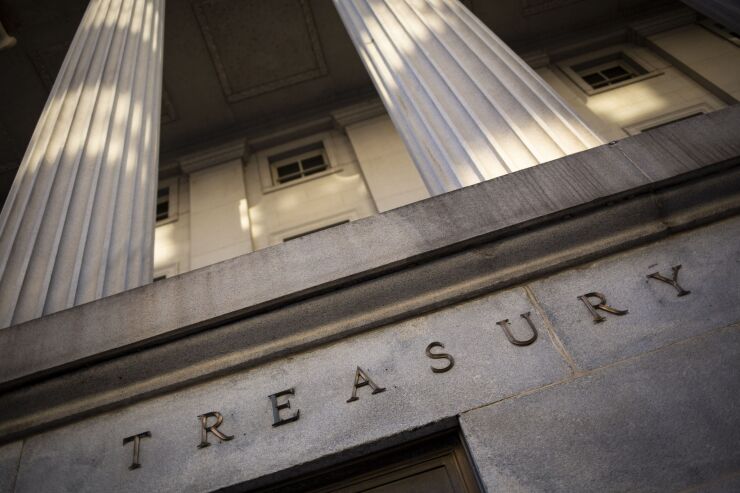
The Treasury Department on Monday solicited public input on what steps financial institutions should take to combat illicit activity in the digital asset space as part of the recently passed stablecoin bill that President Trump signed into law last month.
The GENIUS Act includes a provision requiring the Treasury Department to take public comment related to new approaches that financial institutions currently use or could deploy to detect illicit activity — including money laundering, sanctions evasion and terrorism financing — involving digital assets like cryptocurrencies.
"In particular, Treasury asks commenters about application program interfaces, artificial intelligence, digital identity verification, and use of blockchain technology and monitoring," the notice informed interested parties. "Innovative tools are critical to advancing efforts to address illicit finance risks but can also present new resource burdens for financial institutions. Treasury will use public comments to inform research on the effectiveness, costs, privacy and cybersecurity risks, and other considerations related to these tools."
The
Banking industry voices have expressed
Supporters of the new regime say stablecoins, under a clearer legal framework, hold the potential to transform payments and solidify American leadership in digital assets. Skeptics — among them community bankers, state regulatory advocates and some Democrats — worry the law breaks down the long-standing separation between banking and commerce and could draw deposits out of the regulated banking system.
Under the GENIUS Act, Treasury will seek input on four categories of technology that could be used to detect illicit activity: application programming interfaces, artificial intelligence, digital identity verification and blockchain monitoring.
APIs are a type of library tool that firms can use to communicate across software applications to share information about anti-money laundering, counter-terrorism financing and sanctions compliance. The Treasury says AI could help institutions analyze massive amounts of data and "more effectively identify illicit finance patterns, risks, trends, and typologies."
Treasury says new methods of digital identity verification, whether through government documents or biometrics, could be used to onboard customers or verify credentials involved in executing transactions.
"Treasury is aware of several efforts in the digital asset industry to develop portable digital identity credentials designed to support various elements of AML/CFT and sanctions compliance, maximize user privacy, and reduce compliance burden on financial institutions," the request for comment noted. "Digital identity verification tools can also potentially be used by regulated digital asset intermediaries to support onboarding or by decentralized finance (DeFi) services' smart contracts to automatically check for a credential before executing a user's transaction."
The Treasury will take comments for 60 days, until Oct. 17






